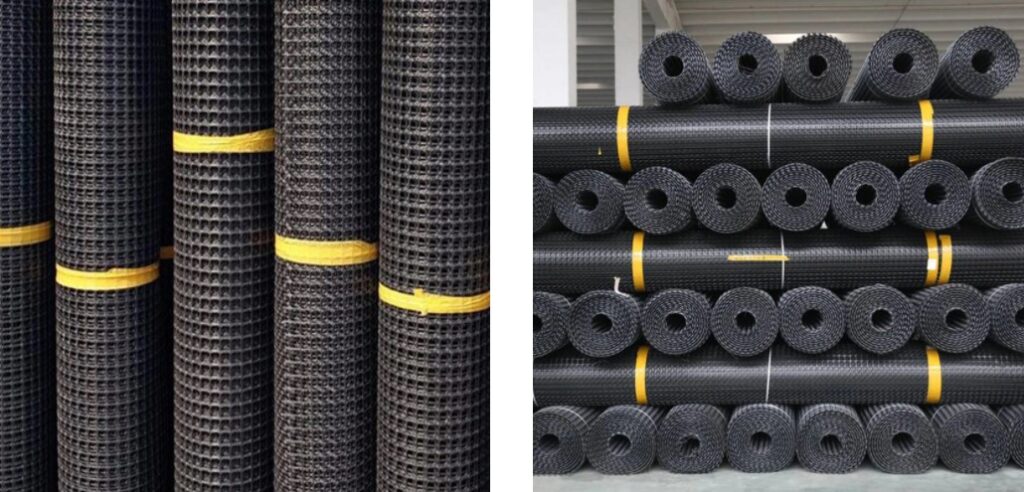Biaxial Plastic Geogrid Introduction:
Biaxial geogrid is made of high molecular polymer through extrusion, forming and punching before longitudinal and lateral stretching. This material has considerable tensile strength in longitudinal and lateral directions. This chain structure can effectively bear and diffuse forces on soil and is applicable to large area permanent load bearing foundation as a reinforcement material.
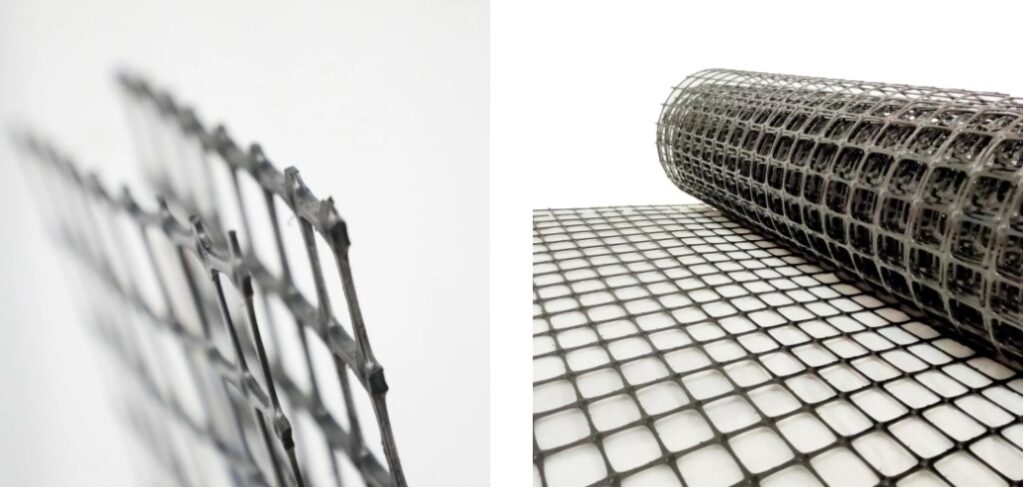
Biaxial Plastic Geogrid Features:
Increase the bearing capacity of the roadbed and foundation and prolong their service life.
Prevent road surface and foundation from sinking or flawing, keep clean and beautiful ground surface.
Convenient construction saves time and labor, reduce mounting time and decrease maintenance expense.
Prevent culverts from flawing.
Enhance earth slope and prevent water loss and soil erosion.
Decrease underlayer thickness and save manufacturing cost.
Enhance the stability of side slope turf net patch to improve greening.
Replace wire netting used in mine as intermediate ceiling netting.
Biaxial Plastic Geogrid Data Sheet
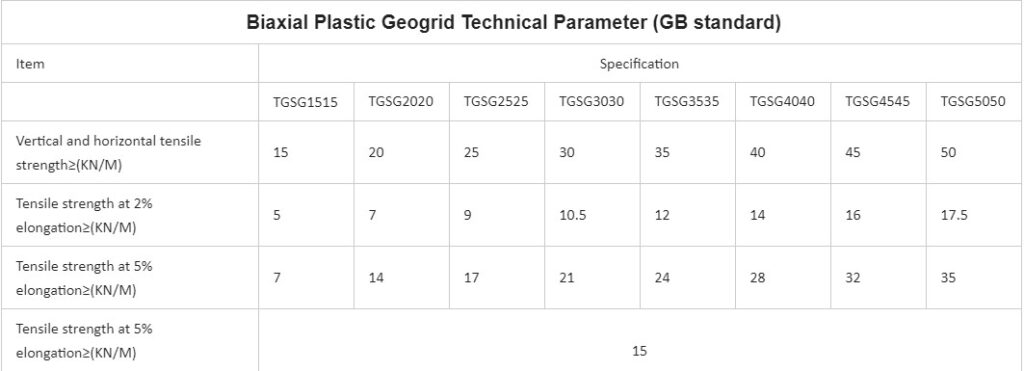
Biaxial Plastic Geogrid Application:
1. It is applied in reinforcement of roadbed and road surface of road, railway, airport, etc.;
2. It is applied in foundation reinforcement of perpetual bearings such as large-scale park, dock, and freight yard, etc.;
3. It is applied in the secondary reinforcement of earth slope after being reinforced by uniaxial plastic geogrid so as to further reinforce the earth slope and prevent water and soil loss;
4. It is applied in the reinforcement of culvert;
5. It is applied in slope protection of railway and road;
6. Reinforcement of mine and gallery;
7. Special network used in livestock breeding;
8. Special network used in cage culture.
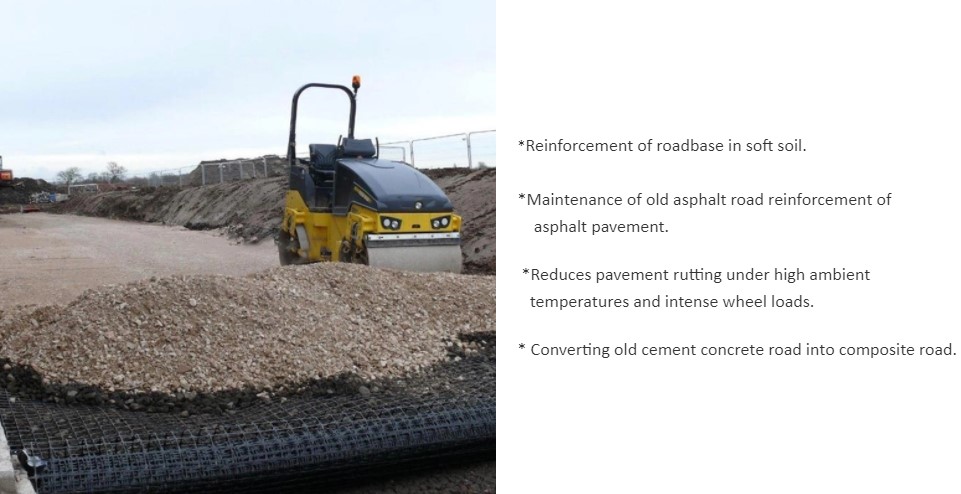
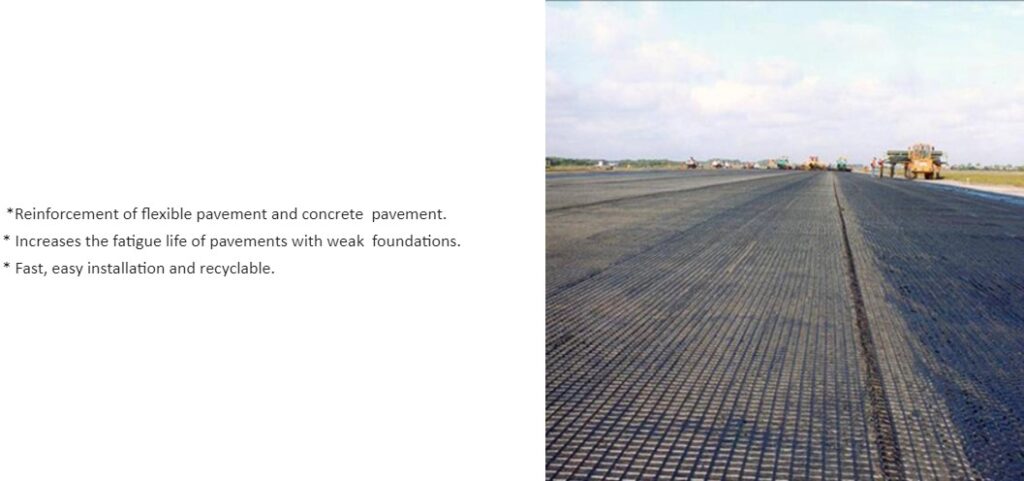
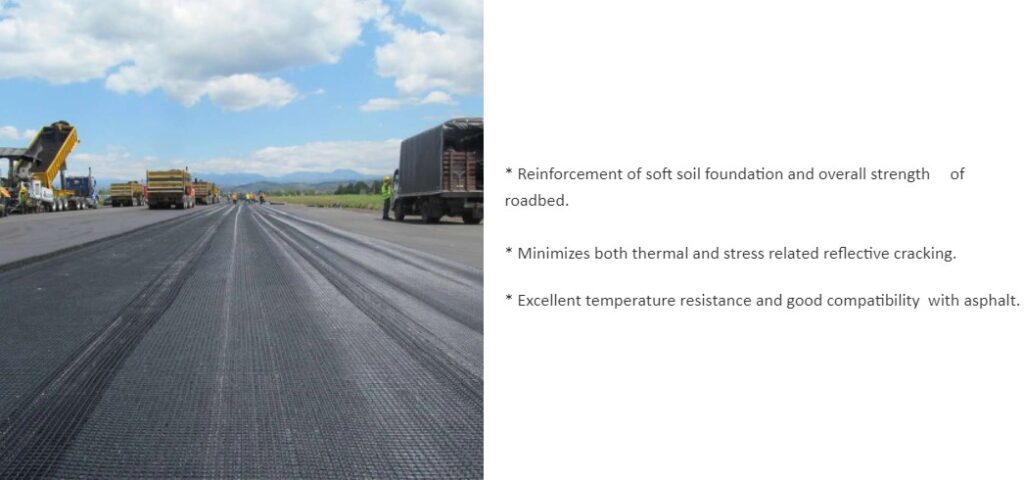
Biaxial Plastic Geogrid Performance
1,High tensile strength at both longitudinal (MD) and transverse direction(XMD).
2,Improving bearing capacity of foundation;
3,Preventing cracking and subsiding;
4,Convenient to construct, reducing cost and maintaining expense.
Biaxial Plastic Geogrid Shipping
